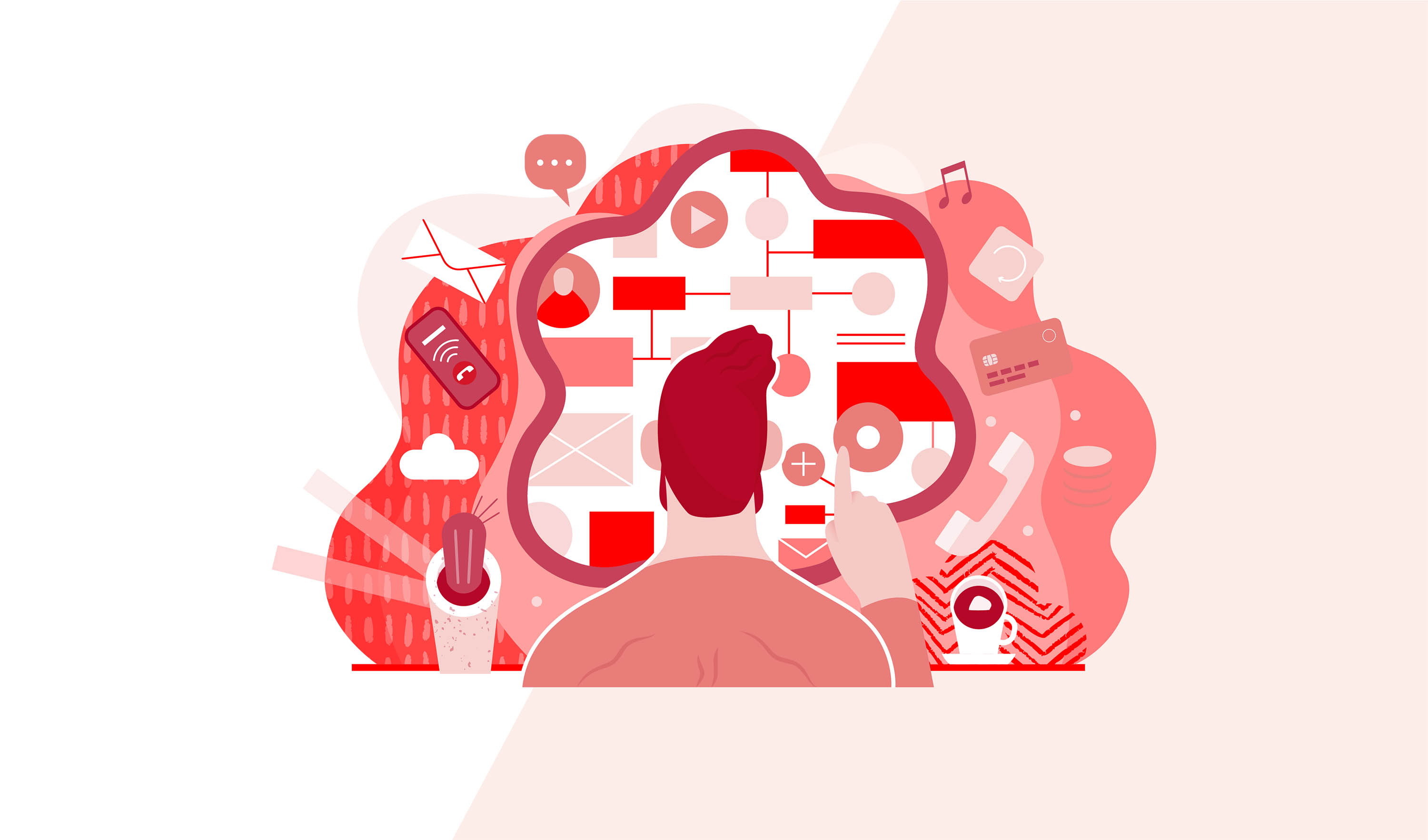We are all victims of information overload. What we don’t know is how it’s impacting productivity and the overall success of marketing and advertising campaigns.
Let’s first take a moment to clearly comprehend the magnitude and repercussions of information overload.
Every company is now hunting for brand success in the digital world. Americans now receive 4,000 to 10,000 ads daily.
How do you stand out in a world of competitive advertising chatter? It’s getting harder. In the 1970s, the average human experienced 500 ads a day. It’s now 5,000 times daily.
In 2005, incidents of uninvited brand messaging per person were 3,500 daily. It’s now 10,000 daily.
There are 5.3 trillion display ads shown online each year, 400 million Tweets sent daily, and 4.75 billion pieces of content shared on Facebook every day.
How is advertising being increasingly perceived? 59% of Americans polled feel that advertising is everywhere. 35% really hate this. 17% would pay to avoid ads. 33% would pay more for a service that promised not to advertise.
Why do people hate ads? In just the last few years, 91% polled describe advertising as only getting more pervasive, obnoxious and intrusive. 79% feel they have been singled out by advertisers for repeat harassment. People say that ads are too many, too intrusive and too creepy.
Are we consuming too much information? Americans use 2.7 million gigabytes of internet data per minute. 2.5 quintillion bytes of data are produced daily. 1.8 billion webpages now exist. 571 new ones are created every minute. The total length of all online HD movies is now 47 million years.
4.15 million YouTube videos play daily. 103 million spam emails and 456 million tweets are sent. 5.3 trillion ads are posted online every year. 4.75 billion Facebook posts are shared daily.
74% polled say they are overwhelmed by the amount of email they receive. 75% of the 246 billion emails sent in 2019 were never opened.
Are new ways of tracking consumers producing even more information overload? The term “data exhaust” is now used to describe the massive amount of tracking data that users create and accumulate as they browse the internet.
This sheer volume, combined with the inability to efficiently organize it, is taking a toll. Instead of making decisions, 40% of data analysts now spend up to 4 hours daily pushing random bits of data around their screens.
Fishing for relevance in a perpetual data-tidal-wave is considered a serious productivity problem by over 50% of digital marketers polled. While 50% do not want to admit the amount, 15% claim to trash at least half of all data they collected.
Is information overload blocking the ability to think clearly? Of 19,000 Americans, 58% claim that filtering and discerning information from corporate news networks is now a difficult struggle. Only 38% can still easily do so. 66% of Americans polled claim that news corporations fail to clearly label their media products as either fact or opinion.
Does the growing inability to think for oneself have deeper roots? Of 60,000 Dutch employees, those who have more educational programming are 3 times more likely to suffer information overload.
And if one source of information overload is a struggle, how do people feel when they are plugged into multiple sources simultaneously? 83% polled consume content from at least one mobile app daily. 87% use up to four different digital devices daily to store personal and business data. Drowning in digital content, 57% are regularly stressed and angry at their inability to easily find and manage critical personal and business data.
In conclusion, this article has summarized the fundamental factors of information overload that now impact us all on a daily basis. Armed with this awareness, deeper discernment is now possible: Under these conditions, are your employees optimally healthy and productive? Is your advertising getting the best results possible?
In an increasingly information-overloaded world, how will your company get your message heard? What kind of advertising is so loved by customers that they love organically sharing it with others?
Data overload is a big problem for most businesses and brands who are trying to stay ahead of customer-retention trends by becoming more data driven. The more data sources you have, the harder it becomes to determine exactly what you can do with it. You are not able to track everything, and this means you need to learn to focus on the data sources that will provide the most relevant value to your company and its current objectives or you will be distracted.
Managing information is a problem that everyone faces on a daily basis. Social media, e-mail, webpages, mobile apps, etc. all spill data into our lives every single day.
The problem is not just a matter of volume, but also one of disorganisation. Because you’re creating data faster than you know where to put it or what to do with it, the more resources and time you have to dedicate towards cleaning, preparing and analysing it. This makes it more difficult to identify and leverage the good sources of data.
Information overload prevents us from taking decisions or actions because we’re faced with a situation where we have too much information to consume. It’s impossible to avoid data overload entirely. However, you can avoid overload by being smart with how you use it:
- Stay focused – have a clear objective and ensure this is well defined and measurable.
- Prioritise data sources – by sifting through data and keeping only the relevant data that is of importance to you.
- Don’t get distracted – set benchmarks, goals, deadlines and stick to them. Spending too much time on data will cause you to lose sight of the ultimate goal, creating results.
- Simplify – the information by making it clear and presentable (be perspicacious).




